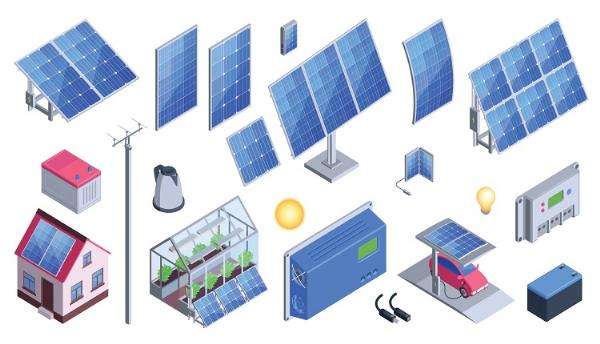 Social Media Content Packs – Stay Active Without Lifting a Finger!
Social Media Content Packs – Stay Active Without Lifting a Finger!
Aircraft Electrical Generation Systems Market Responds to Rising More Electric Aircraft Demand
Written by Lisa Tate » Updated on: June 17th, 2025

The Global Aircraft Electrical Generation Systems Market is driven by the increasing demand for more electric aircraft, emphasizing efficient, lightweight electrical systems, and the industry-wide shift towards electrification for improved sustainability and operational efficiency.
According to TechSci Research report, “Global Aircraft Electrical Generation Systems Market - Industry Size, Share, Trends, Competition Forecast & Opportunities, 2029F”, the Global Aircraft Electrical Generation Systems Market stood at USD 0.7 Billion in 2023 and is anticipated to grow with a CAGR of 7.98% in the forecast period, 2025-2029. The global aircraft electrical generation systems market is a critical component of the aerospace industry, supplying the essential power systems that enable the operation of various aircraft functions. These systems are pivotal in powering everything from avionics and flight control systems to lighting, in-flight entertainment, and other electrical components. The market's growth is driven by several key factors, including the increasing demand for more electric aircraft (MEA), advancements in electrical generation technology, and the ongoing modernization of existing aircraft fleets. The transition to MEA is particularly significant as it aims to reduce the reliance on hydraulic and pneumatic systems, thereby enhancing fuel efficiency, reducing maintenance costs, and minimizing environmental impact.
One of the primary growth drivers in the aircraft electrical generation systems market is the increasing adoption of MEA technology. As the aerospace industry seeks to improve operational efficiency and sustainability, there is a strong push towards integrating more electric systems into aircraft design. MEA technology replaces traditional hydraulic and pneumatic systems with electrical ones, leading to lighter aircraft and improved fuel efficiency. This shift not only supports environmental goals but also reduces the complexity and weight of aircraft systems, leading to lower operational costs. Furthermore, advancements in power electronics and electrical generation technology, such as more efficient generators and power distribution systems, are enabling the development and implementation of these advanced electrical systems.
The market faces several challenges that must be addressed to fully realize its potential. One significant challenge is the high cost associated with the development and integration of advanced electrical generation systems. Research and development, testing, and certification of these systems require substantial financial investments. Additionally, the aerospace industry is heavily regulated, with stringent safety and performance standards that electrical systems must meet. Ensuring compliance with these regulations can be a lengthy and costly process. Another challenge is the reliability and redundancy required for aircraft electrical systems. These systems must be highly reliable to ensure the safety of aircraft operations, and achieving this reliability can be technically challenging and expensive.
Despite these challenges, the market presents numerous opportunities for growth and innovation. The increasing demand for unmanned aerial vehicles (UAVs) and advanced military aircraft is driving the need for more sophisticated electrical generation systems. These applications require high-performance power systems capable of supporting advanced avionics, surveillance equipment, and other mission-critical systems. Additionally, the growing interest in electric and hybrid-electric propulsion systems for aircraft presents a significant opportunity for the market. These propulsion systems rely heavily on advanced electrical generation and distribution systems, creating new avenues for market expansion. The development of lightweight, high-efficiency generators and power distribution units is crucial for the success of these new propulsion technologies.
The global aircraft electrical generation systems market is poised for significant growth, driven by the adoption of MEA technology, advancements in power electronics, and the increasing demand for advanced military and unmanned aircraft. While the market faces challenges related to cost, regulatory compliance, and system reliability, it also offers substantial opportunities for innovation and expansion. The ongoing transition to more electric and hybrid-electric aircraft will continue to drive demand for advanced electrical generation systems, supporting the development of more efficient, reliable, and sustainable aerospace technologies. As the industry evolves, the importance of cutting-edge electrical generation systems in enhancing aircraft performance and operational efficiency will only increase.
The global aircraft electrical generation systems market can be segmented by fit type into two primary categories: original equipment (OE) and aftermarket. Original equipment refers to electrical generation systems that are installed during the manufacturing of new aircraft. These systems are designed to meet the specific requirements of the aircraft manufacturer and are integrated into the aircraft's electrical architecture from the outset. The demand for original equipment systems is closely tied to the production rates of new aircraft, which are influenced by factors such as airline fleet expansions, new aircraft models, and the replacement of aging aircraft. The continuous advancement in aircraft technology and the push towards more electric aircraft (MEA) are driving innovations in original equipment electrical generation systems, ensuring they are more efficient, reliable, and capable of meeting the increasing electrical demands of modern aircraft.
On the other hand, the aftermarket segment involves the sale of electrical generation systems and related components for aircraft already in service. This includes replacements, upgrades, and retrofits to enhance the performance, efficiency, and reliability of the aircraft's electrical systems. The aftermarket segment is crucial for maintaining the operational readiness and safety of the global aircraft fleet. Airlines and operators invest significantly in aftermarket solutions to extend the lifespan of their aircraft, comply with regulatory requirements, and incorporate the latest technological advancements. The aftermarket segment is also driven by the need for maintenance, repair, and overhaul (MRO) services, which ensure that electrical generation systems remain in optimal working condition throughout the aircraft's operational life.
The aftermarket segment is characterized by its focus on providing cost-effective and timely solutions to meet the diverse needs of aircraft operators. This includes the development of upgrade kits and retrofitting options that can be installed with minimal downtime, ensuring that aircraft can return to service quickly. Technological advancements, such as modular and scalable electrical generation systems, play a significant role in the aftermarket, offering flexibility and compatibility with a wide range of aircraft models. Additionally, the increasing adoption of predictive maintenance and digital monitoring technologies is enhancing the efficiency and effectiveness of aftermarket services, enabling proactive maintenance and reducing the risk of unexpected failures.
Both the original equipment and aftermarket segments are integral to the overall growth and sustainability of the aircraft electrical generation systems market. While original equipment drives innovation and sets new standards in aircraft electrical systems, the aftermarket ensures that these systems remain functional and up-to-date throughout the aircraft's lifespan. Together, these segments support the evolving needs of the aviation industry, from the introduction of new aircraft to the ongoing maintenance and enhancement of existing fleets. The balance between original equipment and aftermarket solutions is essential for the comprehensive development and continuous improvement of aircraft electrical generation systems, ultimately contributing to safer, more efficient, and more reliable air travel.
Browse over market data Figures spread through XX Pages and an in-depth TOC on "Global Aircraft Electrical Generation Systems Market”
https://www.techsciresearch.com/report/aircraft-electrical-generation-systems-market/22788.html
The global aircraft electrical generation systems market, segmented by region, reflects diverse dynamics and varying levels of development and demand. In North America is the dominating market , is supported by a robust aerospace industry, significant investments in research and development, and the presence of key aerospace manufacturers and suppliers.
The demand for advanced electrical generation systems is driven by both commercial and military aviation sectors, which require cutting-edge technology to enhance aircraft performance, safety, and efficiency. Regulatory standards and the push towards more electric aircraft (MEA) technologies further propel market growth, with ongoing innovations aimed at reducing emissions and improving fuel efficiency.
In Europe & CIS, the aircraft electrical generation systems market benefits from a strong focus on innovation and sustainability. European countries, with their stringent environmental regulations and commitment to reducing carbon footprints, are at the forefront of developing and adopting advanced electrical systems. The region's aerospace sector is characterized by collaborations and partnerships aimed at enhancing technological capabilities and ensuring compliance with regulatory standards.
Additionally, the CIS region, with its historical expertise in aerospace engineering, contributes through both commercial and military aviation projects, supporting the demand for sophisticated electrical generation systems that meet high performance and reliability standards.
The Asia Pacific region is experiencing significant growth in the aircraft electrical generation systems market, driven by the rapid expansion of commercial aviation and increasing defense expenditures. Countries such as China, India, and Japan are investing heavily in their aerospace industries, focusing on both domestic production and international partnerships.
The demand for new aircraft, coupled with the modernization of existing fleets, fuels the need for advanced electrical generation systems. The region's growing emphasis on technological self-reliance and the development of indigenous aerospace capabilities also play a crucial role in market expansion. Furthermore, regional initiatives to improve infrastructure and aviation safety standards contribute to the increasing adoption of modern electrical generation systems.
In South America, the market for aircraft electrical generation systems is evolving, supported by economic growth and the development of local aerospace industries. Countries like Brazil and Argentina are making strides in aerospace manufacturing and MRO (maintenance, repair, and overhaul) services, driving demand for advanced electrical systems. The focus on enhancing aviation infrastructure and expanding regional air travel networks necessitates reliable and efficient electrical generation systems. Additionally, collaborations with global aerospace companies help South American nations integrate cutting-edge technologies into their aircraft, supporting both commercial and defense aviation sectors.
The Middle East & Africa region presents a unique landscape for the aircraft electrical generation systems market, characterized by strategic investments in aviation infrastructure and the expansion of regional airlines. The Middle East, with its significant air travel hubs and ambitious aviation projects, demands advanced electrical generation systems to support its growing fleet of commercial and military aircraft.
The region's defense sector, with ongoing modernization efforts, also drives the need for sophisticated electrical systems. In Africa, emerging aviation markets are focusing on improving their aerospace capabilities, with increasing investments in new aircraft and the modernization of existing ones. Efforts to enhance aviation safety and infrastructure further support the adoption of advanced electrical generation systems in this region.
The global aircraft electrical generation systems market is shaped by regional dynamics, with each area contributing through its unique strengths and market demands. From North America's technological advancements to Europe & CIS's focus on sustainability, Asia Pacific's rapid expansion, South America's evolving market, and the strategic importance of the Middle East & Africa, the market reflects a complex interplay of factors driving the development and adoption of advanced electrical generation systems worldwide.
Major companies operating in Global Aircraft Electrical Generation Systems Market are:
Collins Aerospace (Raytheon Technologies Corporation)
Safran Group
Honeywell International Inc.
GE Aviation
Thales Group
Skurka Aerospace, Inc
AMETEK.Inc.
Meggitt PLC
Astronics Corporation
Download Free Sample Report
https://www.techsciresearch.com/sample-report.aspx?cid=22788
Customers can also request for 10% free customization on this report
“The Global Aircraft Electrical Generation Systems Market is undergoing a transformative evolution, driven by the rise of More Electric Aircraft concepts, advancements in power generation technologies, and a heightened emphasis on sustainability. As aviation embraces electrification, this market plays a pivotal role in providing innovative solutions to meet the increased power demands of electrified functions.
With a focus on efficiency, lightweight design, and integration of renewable energy sources, the Aircraft Electrical Generation Systems Market is shaping the future of aircraft electrification. Despite challenges, it remains at the forefront of delivering cutting-edge technologies that align with the industry's goals of sustainability and operational excellence.” said Mr. Karan Chechi, Research Director of TechSci Research, a research-based management consulting firm.
“Aircraft Electrical Generation Systems Market – Global Industry Size, Share, Trends, Opportunity, and Forecast, Segmented By System Type (Main Generators, Auxiliary Power Generators, and Emergency Power Unit Generators), By Aircraft Type (Commercial Aircraft, Regional Aircraft, General Aviation, Helicopter, Military Aircraft, UAV), By Fit Type (Original Equipment, Aftermarket), By Region and Competition, 2019-2029F”, has evaluated the future growth potential of Global Aircraft Electrical Generation Systems Market and provides statistics & information on market size, structure and future market growth. The report intends to provide cutting-edge market intelligence and help decision makers take sound investment decisions. Besides, the report also identifies and analyzes the emerging trends along with essential drivers, challenges, and opportunities in Global Aircraft Electrical Generation Systems Market.
Contact Us-
TechSci Research LLC
420 Lexington Avenue, Suite 300,
New York, United States- 10170
M: +13322586602
Email: [email protected]
Website: www.techsciresearch.com
Note: IndiBlogHub features both user-submitted and editorial content. We do not verify third-party contributions. Read our Disclaimer and Privacy Policyfor details.
Copyright © 2019-2025 IndiBlogHub.com. All rights reserved. Hosted on DigitalOcean for fast, reliable performance.














